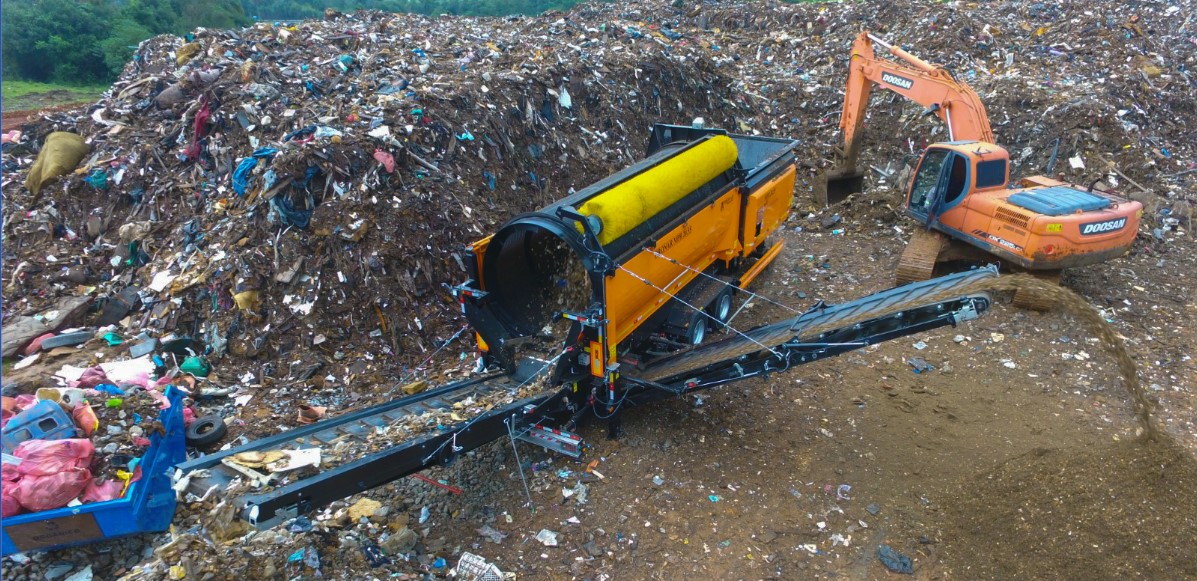The Importance of Classification and Screening of Urban Waste: A Look into the Sustainable Future of Cities in Rio Grande do Sul

15 de January de 2025
Urban waste management is a constant challenge for cities, especially in times of crisis, such as the recent floods that affected several locations in Rio Grande do Sul. The simple disposal of these wastes in landfills is no longer a viable solution, both from an environmental and economic point of view. Instead, waste classification and screening emerge as essential practices for sustainable development and environmental preservation. The End of Landfills: An Urgent Need Landfills, although widely used, present serious problems. They occupy large land areas, emit greenhouse gases, and can contaminate soil and groundwater. With the increasing generation of urban waste, landfill capacity is quickly being depleted, making it imperative to find more efficient and ecological alternatives. Waste Processing: The Sustainable Solution Waste classification and screening are processes that allow the separation of recyclable and compostable materials from those that really need to be discarded. This process not only reduces the volume of waste sent to landfills but also transforms what would be trash into valuable resources, such as raw materials for new productions and organic compounds for agriculture. Technology Serving Sustainability: Mobile Waste Classification Screen - MPB20.55 Line To efficiently meet this demand, Lippel brings to Brazil the High Production Mobile Waste Classification Screen - MPB20.55. This equipment, with advanced European technology, is capable of classifying urban waste into different granulometries, making large-scale reuse and recycling a reality. Benefits of the Mobile Waste Classification Screen 1. Versatility: With its solid structure and simple operation, the MPB20.55 Screen is ideal for classifying various materials, including urban waste, wood waste, compost, biomass, coal, soil, and gravel. 2. Customization: The removable drum allows adjusting the equipment to the specific needs of the customer, with variable drum and hole diameters. 3. Mobility: The optional self-propelled track facilitates the transport and repositioning of the screen, ensuring accessibility to difficult terrain and greater safety on uneven terrain. 4. Efficiency: The ability to process large volumes of waste significantly reduces the amount of material destined for landfills, promoting a continuous reuse cycle. Contribution to the Recovery of Cities in Rio Grande do Sul The cities of Rio Grande do Sul, affected by floods, face an exceptional accumulation of urban waste. Implementing technologies such as Lippel's Mobile Waste Classification Screen will not only help in the effective management of these wastes but also contribute to the environmental and economic recovery of these regions. By turning waste into resources, cities can pave the way for a cleaner and more sustainable future, reducing dependence on landfills and promoting circular economy practices. The end of landfills The transition from landfills to the classification and screening of urban waste is crucial to address the environmental and economic challenges of the 21st century. Equipment like Lippel's Mobile Waste Classification Screen - MPB20.55 Line plays a key role in this transformation, offering innovative and efficient waste management solutions. The cities of Rio Grande do Sul, in particular, can greatly benefit from this technology, especially in post-flood recovery, ensuring a more sustainable future for their communities. Watch the MPB2055 Screen Learn more about the MPB Line [Translated by Luana Monteiro]